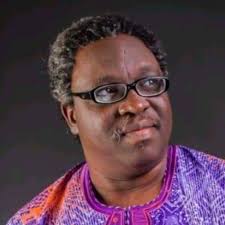Dr Tinuade Ogunlesi, a medical practitioner and Consultant Pediatrics, Olabisi Onabanjo University Teaching Hospital (OOUTH), Ogun state has urged patients to seek help regarding differential diagnoses.
Ogunlesi gave the advice while speaking on Monday in Abuja.
He said it is imperative to know that in clinical medicine, there is something called “differential diagnoses”.
According to Ogunlesi, the terminology refers to a group of clinical conditions or disorders which appear very similar in terms of symptoms and signs.
“This is why Google does not help you with your symptoms but will yield a long list of differential diagnoses from common cold to cancer”.
Ogunlesi said this is why it becomes imperative to see a doctor who is trained to sort differential diagnoses.
“Good examples include malaria and typhoid fever. In both conditions, fever, weakness, headache and body ache are prominent. Other examples include pneumonia (an infection of the lungs) and heart failure (inability of the heart to pump blood adequately). In both conditions, cough and breathlessness are prominent.
Ogunlesi said making a diagnosis largely depends on the ability of the doctor to sieve the grains from the chaff by searching for distinguishing features between two similar conditions.
“For example, there will be fever in pneumonia but not in heart failure; there will be leg swelling in heart failure but not in pneumonia”.
Ogunlesi said he is not out to teach medicine but to let the public know that health care workers are not magicians, adding that they only rely on the scope of information provided.
He added that it also boils down to what they can see and feel on the body when being examined, stressing that they are in perfect control of what they see or feel when they examine patients.
Ogunlesi said they have absolutely no control over the extent of information patients choose to provide, adding that many clinical diagnoses require confirmation via laboratory tests and imaging techniques.
“Therefore, after conducting interviews and examinations, the health worker makes a long list of differential diagnoses and thereafter begins to exclude them one after the other until the very most likely ones are left. These leftovers are then sorted out by requesting for specific laboratory tests and imaging”.
Ogunlesi said the wider the spectrum of tests and imaging, the better; adding that the practice of medicine is structured such that if patients consult five doctors with the same set of complaints, four of them will most likely request for the same set of investigations.

